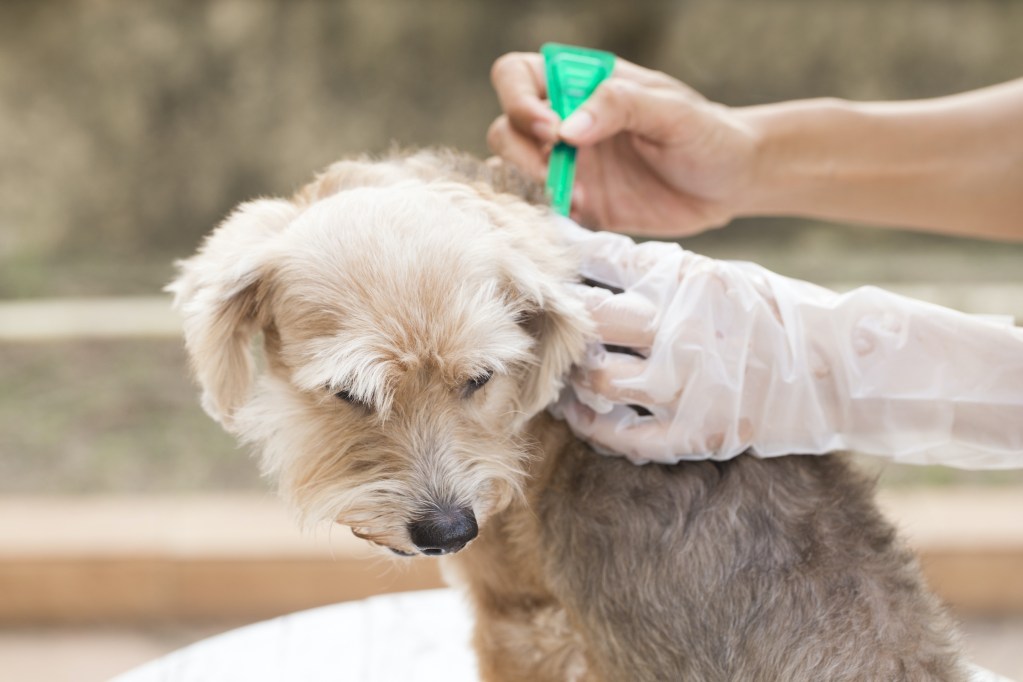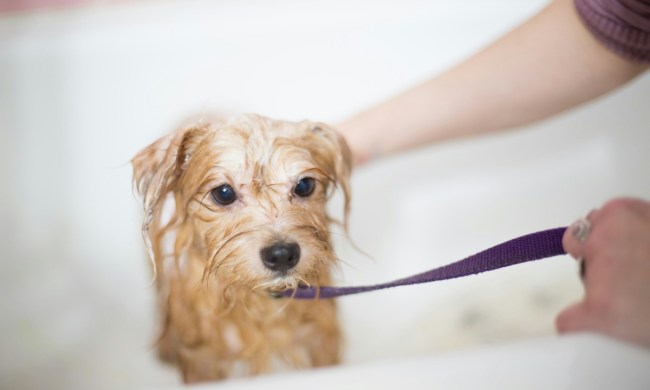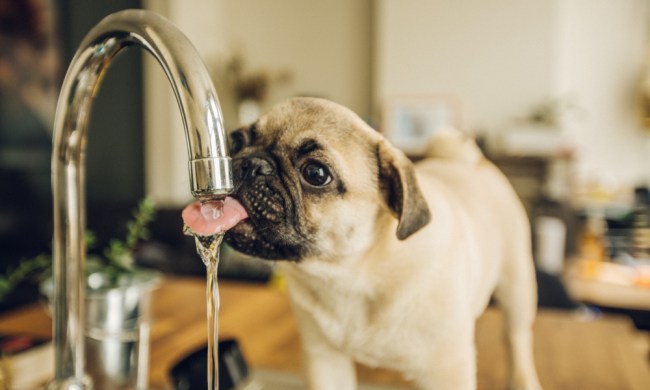Fleas and ticks are common issues with dogs, but they aren’t harmless. These pests attach themselves to a dogs’ body, feed off their blood, and make them extremely uncomfortable, if not ill. It can be a miserable experience — for both you and your pet. Left undetected, fleas and ticks can transmit a host of unsavory diseases. You need to keep a close eye out for the signs your dog has ticks.
So, where does a dog pick up these nasty critters, anyway? And if they do, how will you know? We’ve got the answers plus a few tricks on how to prevent them (and why this matters). These are the sign your dog has ticks or fleas.

What’s the difference between a flea and a tick, anyway?
Both bugs are parasites; however, there are distinct differences between them.
Fleas are small wingless insects that are almost invisible to the human eye. They have six legs and antennae, and they prefer to spend their entire life span (about three months) on one host. Adult female fleas lay as many as 20 to 40 eggs on their chosen victim each day, so they multiply quickly, especially in the warm-weather months.
Because fleas jump on and off their host after feeding, your dog can pick them up almost anywhere — your yard, the dog park, your groomer, or even from friends and family who visit.
Ticks, on the other hand, are arachnids (think spider family) and feed by digging their entire head into the skin. They have eight legs and no antennae, and they are large enough to be seen with the human eye. Ticks spend a week or so on each host and live as long as three years. Since they can’t jump, they must wait for another unsuspecting snack to come by so they can crawl on board.
Unlike fleas, ticks don’t mind cold weather, which basically means your dog can pick them up almost any time of year. Ticks like to hang out in the woods and high grass or on shrubs, just waiting for a new host to brush up against them.
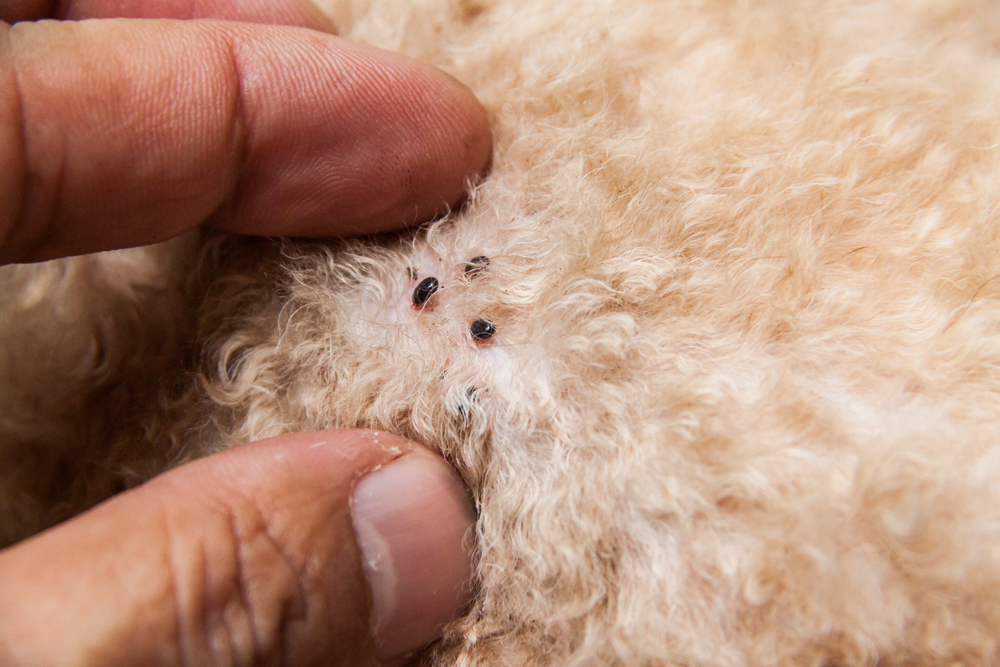
Signs your dog has ticks or fleas
Because fleas are small and jump around a lot, and ticks burrow into your dog’s fur, it’s often hard to see them if you don’t know what to look for. Here are five telltale signs your dog is unwittingly hosting one or more of these parasites:
- Your dog is scratching, biting, or chewing his skin. Fleas bite. When they do, the protein in their saliva creates an allergic reaction that makes your dog itch.
- Your dog is losing hair, especially around the neck and tail. These are common places for fleas to hide. As your dog scratches to relieve the itch, it can cause hair loss.
- You see tiny red bumps on your dog’s skin. Because fleas jump off their hosts after feeding, it’s often difficult to see them. Their bites, however, can irritate your dog’s skin, causing discomfort and dermatitis.
- You find small black specks on your dog’s skin or bedding. This is flea dirt, a mix of blood meal and flea feces.
- Your dog develops a fever, becomes lethargic, or loses his appetite. Ticks carry ugly diseases like Lyme and Rocky Mountain spotted fever. Fleas can cause anemia and transmit tapeworms.

Are fleas and ticks on your dog dangerous?
Neither of these parasites is desirable, but in comparison, ticks are far more dangerous than fleas.
Fleas can spread tapeworms and anemia. Additionally, the saliva they leave behind from biting your dog can cause dermatitis. If you suspect your dog has fleas, consult your veterinarian. Because these parasites reproduce so quickly, you can have an infestation in your home in no time. Your veterinarian can recommend treatment for your dog as well as ways to rid your entire house of the fleas and the eggs they lay.
Ticks spread Lyme disease and Rocky Mountain spotted fever, just to name a couple of dangerous diseases. That’s why it’s important to check your dog regularly for ticks, especially if he spends time in heavily wooded or grassy areas.
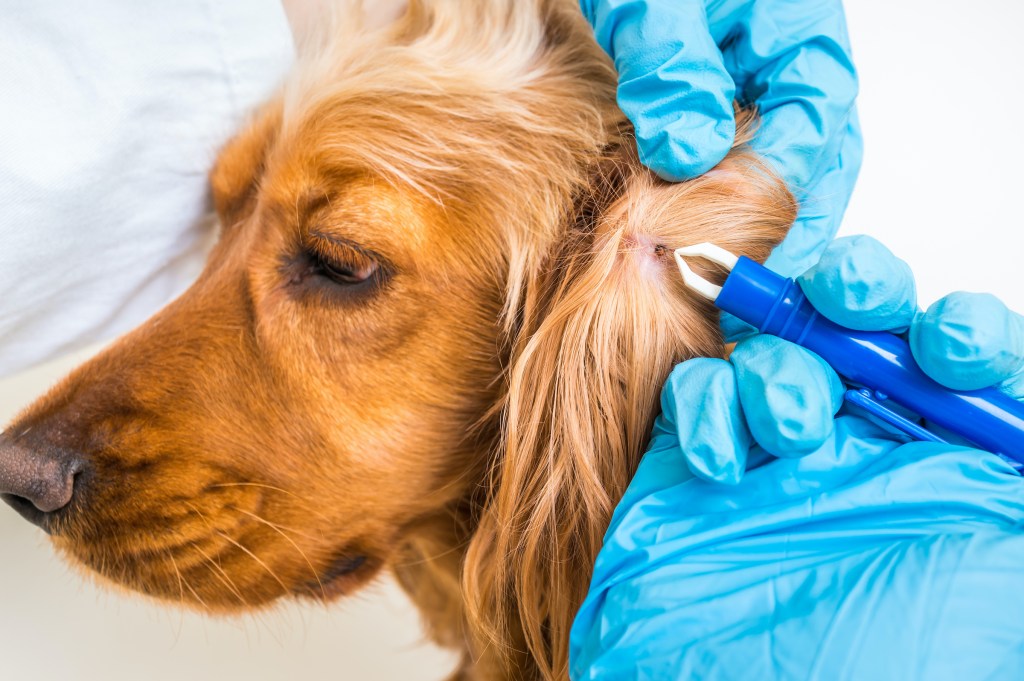
What happens if you don’t remove a tick from a dog?
Top tips to prevent fleas and ticks on your dog
While there’s no foolproof method to keep your dog from getting fleas and ticks, you can minimize the risk:
- Keep your lawn manicured. Fleas and ticks like to live in tall grasses, on shrubs, and in woodpiles. Both like moist and humid conditions.
- Check your dog regularly for signs of parasite activity. Contact your veterinarian immediately if you suspect your dog has contracted an illness as a result.
- Put your dog on a year-round flea-and-tick prevention program as recommended by your veterinarian.
- Schedule regular checkups. Not only can your veterinarian monitor the effectiveness of your dog’s prevention program, but she also can examine him for any signs of illness that might not be obvious.
We should also mention that fleas and ticks are equal-opportunity parasites, meaning they’ll bite just about any mammal, humans included. Fortunately, flea infestations can be eradicated and ticks can be removed fairly easily. Diligence and observation are key. As long as you take the proper precautions and check your pet regularly for signs and symptoms, you can keep all members of your family protected from the discomfort and illnesses these parasites cause.

